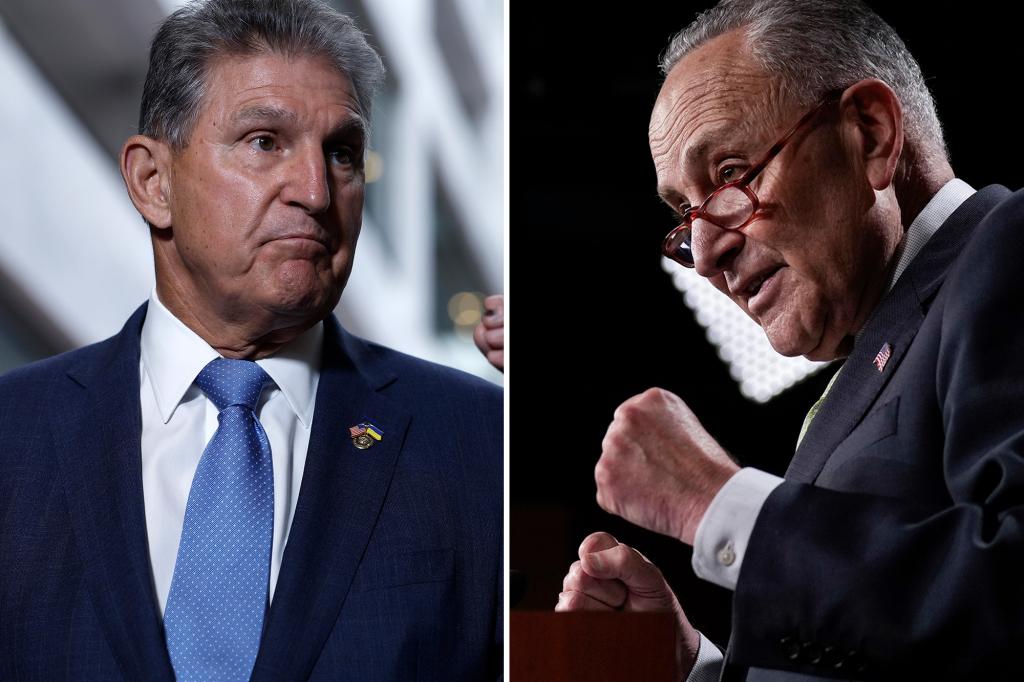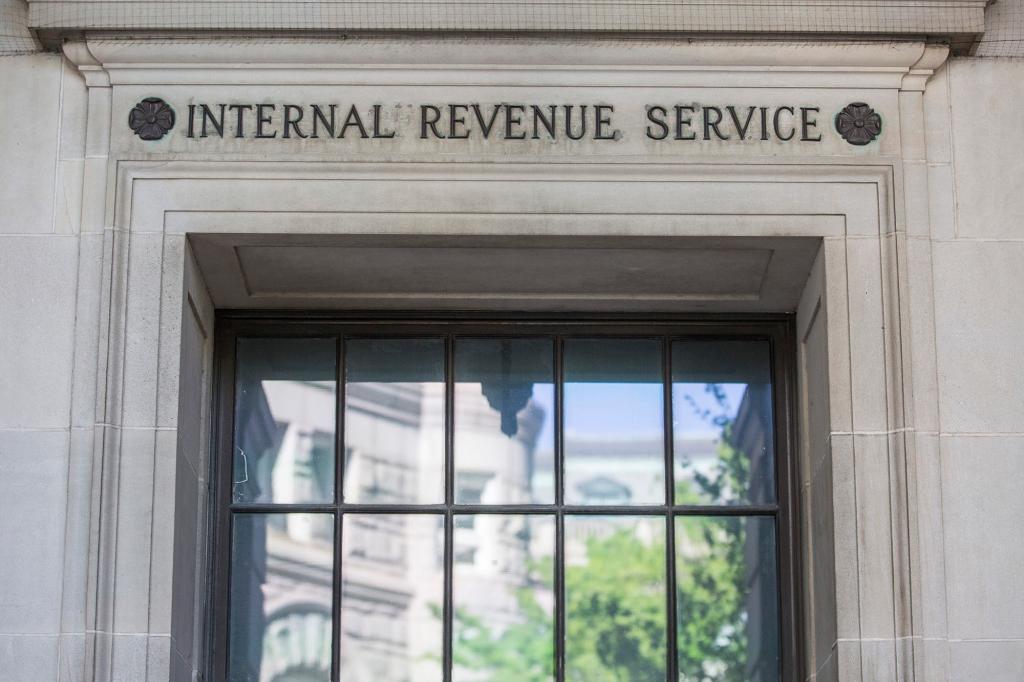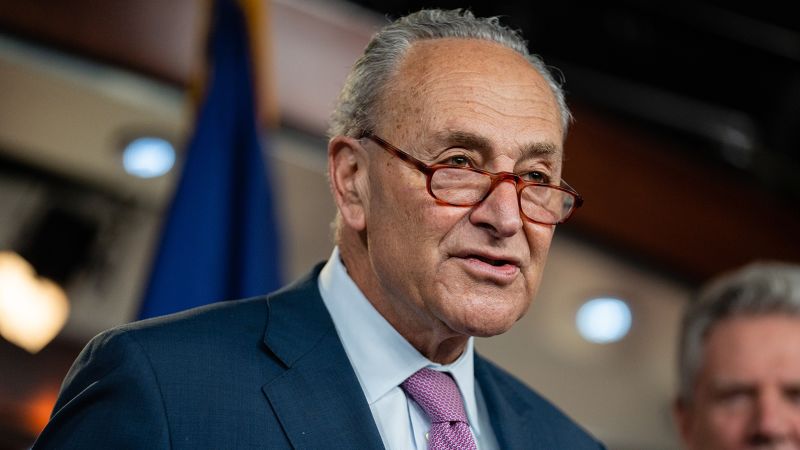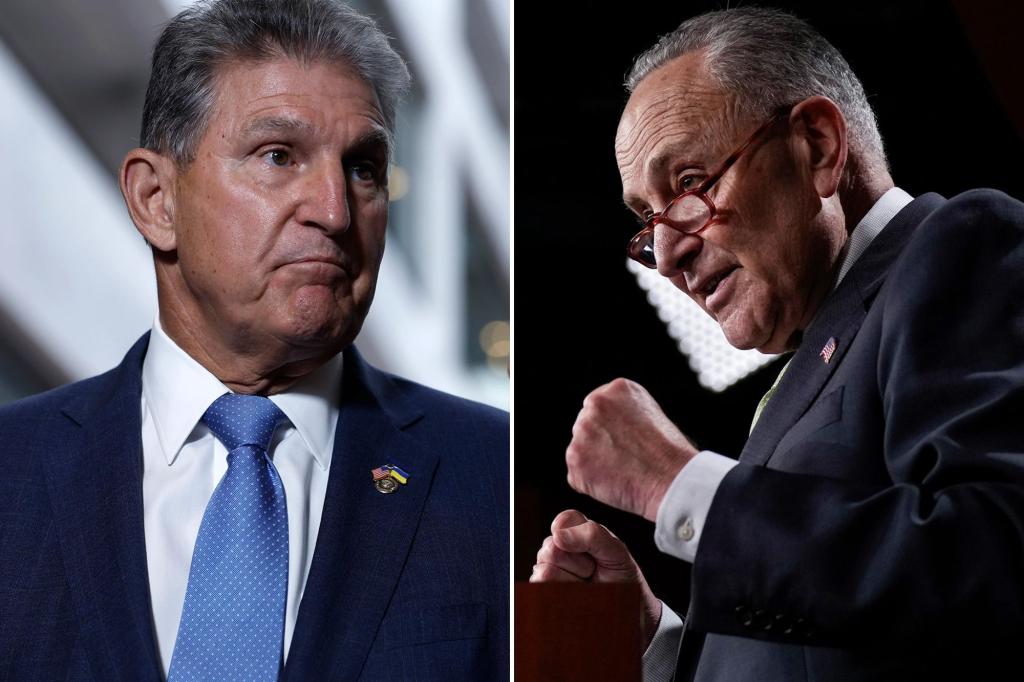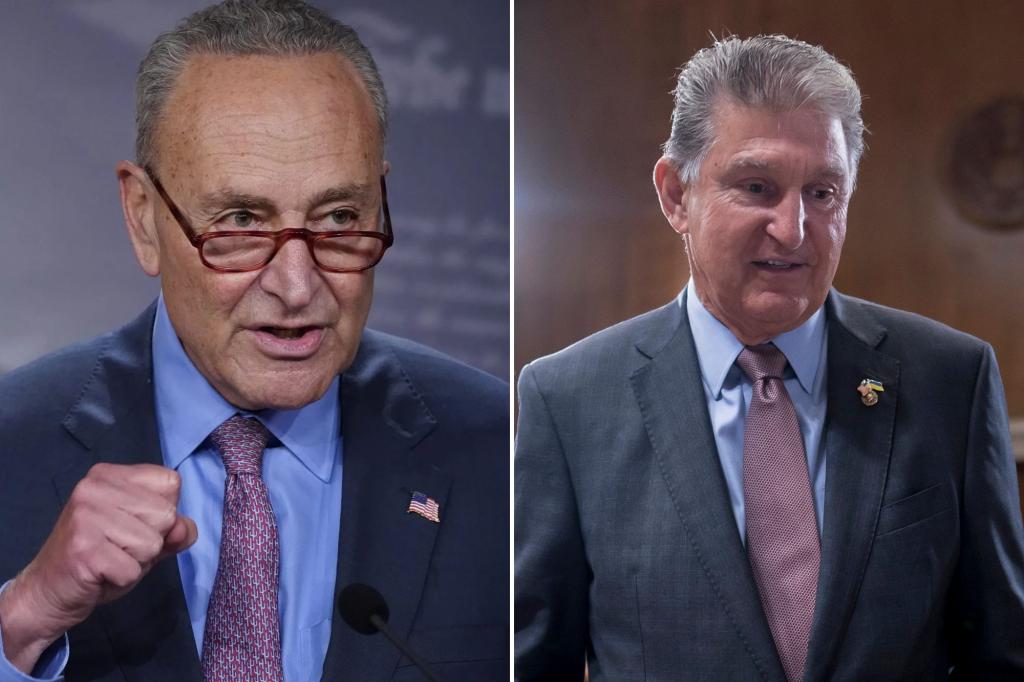That’s sick!
Senate Democrats are embracing a “Don’t Test, Don’t Tell” policy this weekend as they try to ram a $764 billion spending bill through the 50-50 chamber — knowing that even one COVID-19 positive could blow up their plans.
Senate Majority Leader Chuck Schumer (D-NY) has set a Saturday test vote for the so-called Inflation Reduction Act, which needs all 50 Democrats on board so Vice President Kamala Harris can cast a tiebreaking vote in its favor.
“They’re not going to delay it if a member has gotten COVID,” a senior Senate aide told Puck News. “Counterparts are saying they’re not going to test anymore. It’s not an official mandate but we all know we’re not letting COVID get in the way. The deal is happening. Less testing, just wear masks and get it done.”
Another source told the outlet that even if a senator did catch the virus, “you can bring your ventilator and still vote.”
Unlike the House, the Senate does not allow proxy voting, meaning members who cannot make it to the floor due to illness are out of luck.

Earlier in the week – before moderate Sen. Kyrsten Sinema (D-Ariz.) got on board with Schumer and Sen. Joe Manchin’s (D-WV) climate and energy plan – the Democratic leader insisted his party was “going to stay healthy” ahead of a potential vote.
“We’re not talking about a plan B,” Schumer said at the time.
Concerns about having all 50 Democrats and Democrat-voting Independents present on the Senate floor have grown in recent weeks, as several senators have tested positive for COVID or been absent for other health reasons.
In late June, Senate President Pro Tempore Patrick Leahy (D-Vt.) fell in his Virginia home and broke his hip – keeping him out of Washington until this week. He ultimately underwent two surgeries.

Just a week before, Republican Sen. Kevin Cramer of North Dakota seriously injured his hand during a yard work incident.
In early July, Schumer and Sen. Richard Blumenthal (D-Conn.) tested positive for COVID-19, both reporting mild symptoms. Days later, Manchin and Republican Sen. Lisa Murkowski of Alaska also reported positive tests.
Ironically, Schumer accused Senate Republicans of not taking COVID-19 seriously in the fall of 2020, when a spate of positive tests threatened to derail the confirmation of Supreme Court Justice Amy Coney Barrett.
“Every Senator and relevant staff must have negative tests on two consecutive days and have completed the appropriate quarantining period, and there should be mandatory testing every day of the [confirmation] hearing,” Schumer said in a statement on Oct. 5 of that year. “Testing must be administered by an independent entity, such as the Attending Physician of the United States Congress. Failure to implement a thorough testing approach would be intentionally reckless, and could reasonably lead some wonder if Chairman [Lindsey] Graham and Leader [Mitch] McConnell may not want to know the results.”
If the bill clears the planned Saturday test vote, a series of debates and votes on Republican amendments is expected to follow before a potential vote on final passage sometime Sunday. The legislation would then go to the House.
Sinema agreed to support the measure on Thursday after a provision taxing profits earned by hedge fund, venture capital and private equity executives known as carried interest was removed. In exchange, a 1% tax on corporate stock buybacks was added.
Despite its name, several economic experts — and even the White House — have suggested the Inflation Reduction Act would have little impact on the historic price spikes being felt across the country.
.
